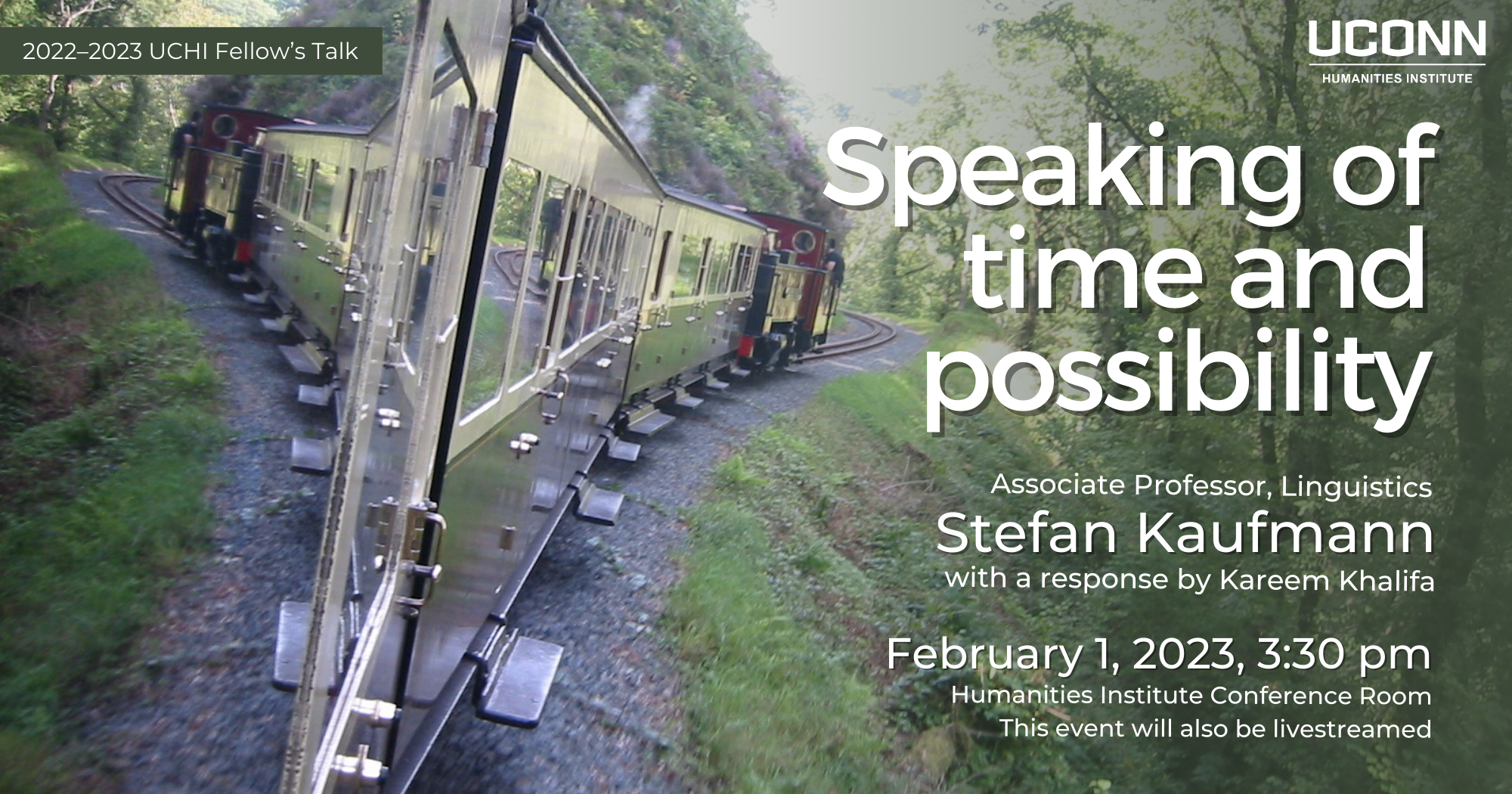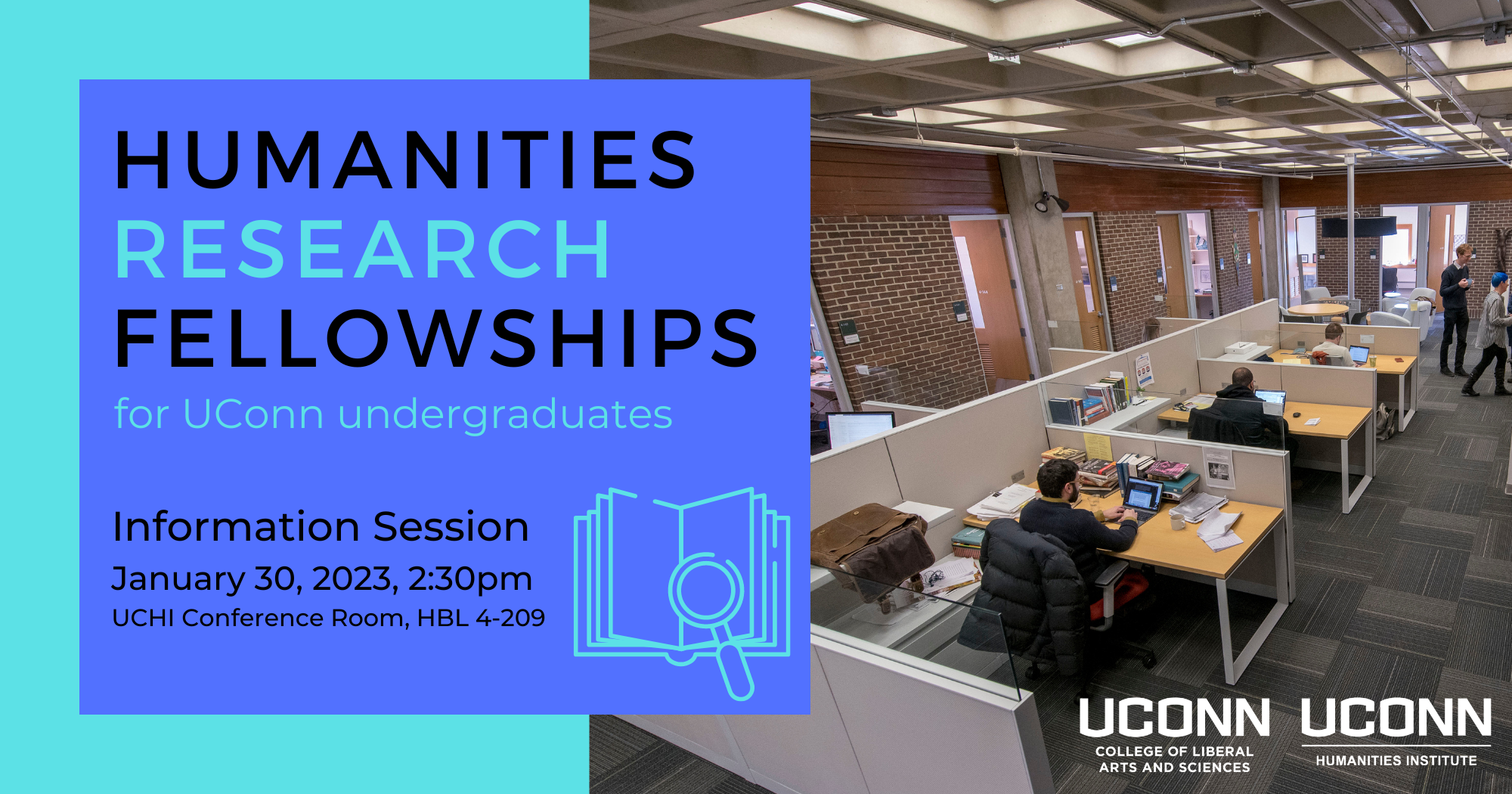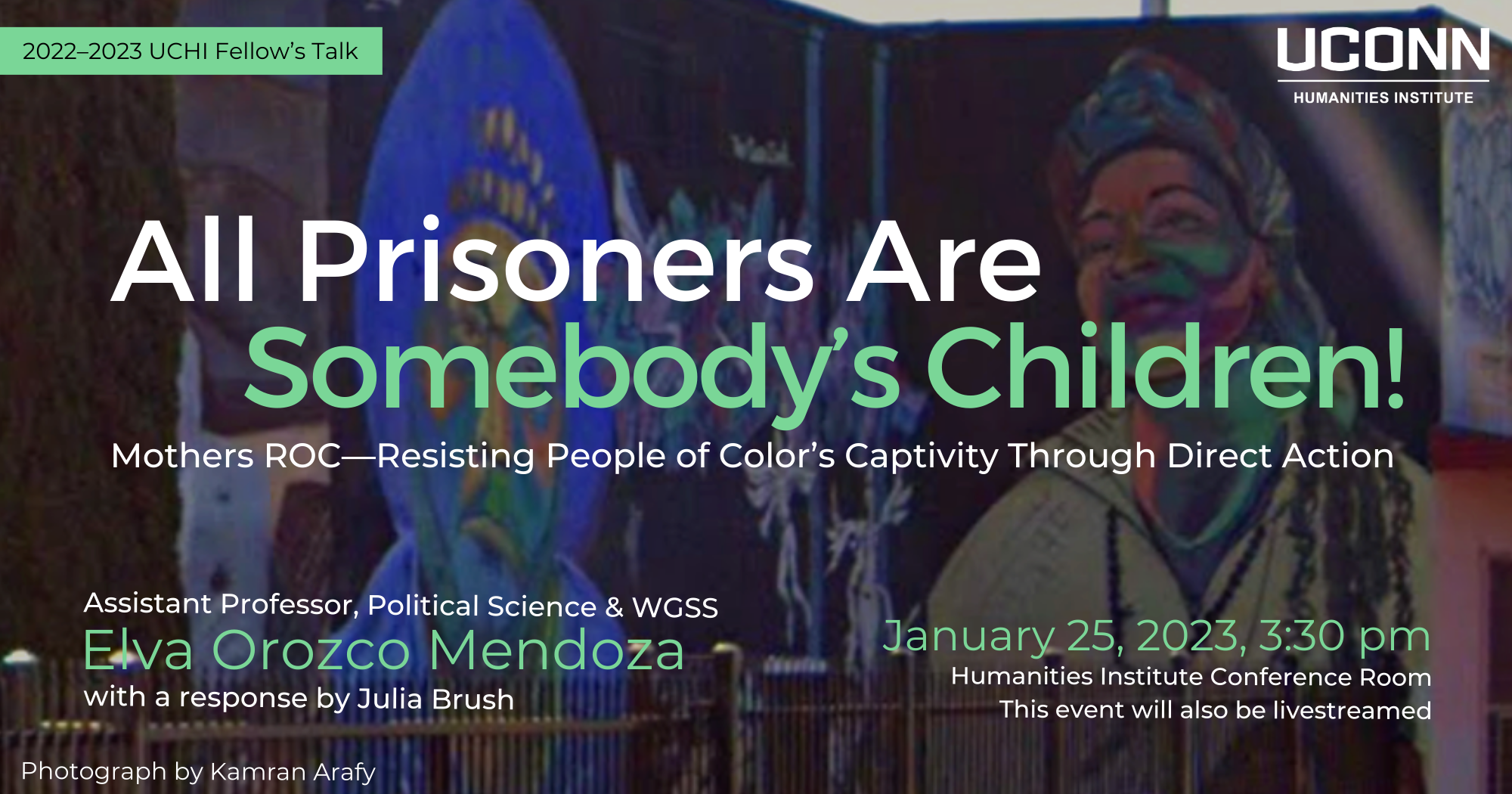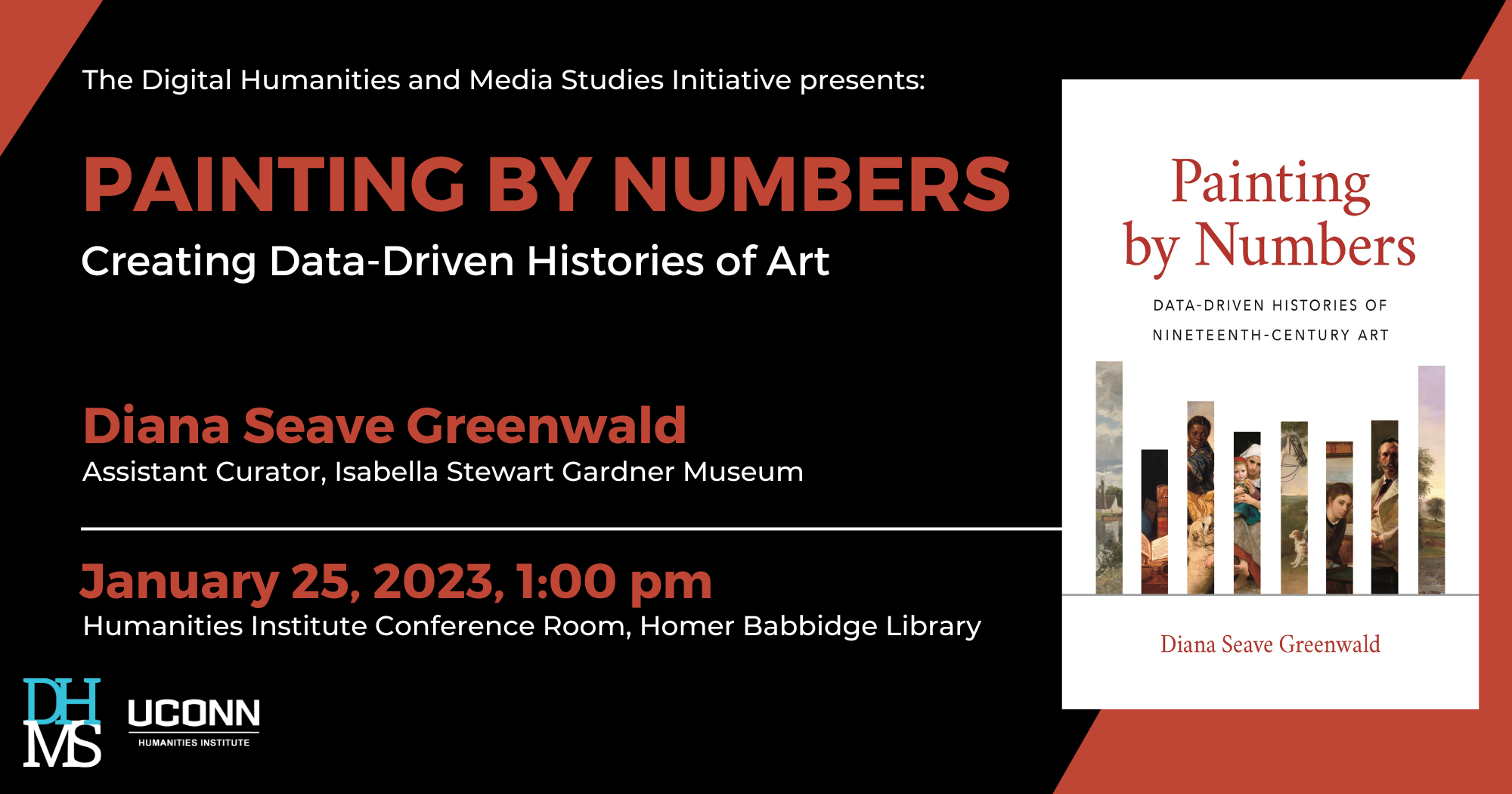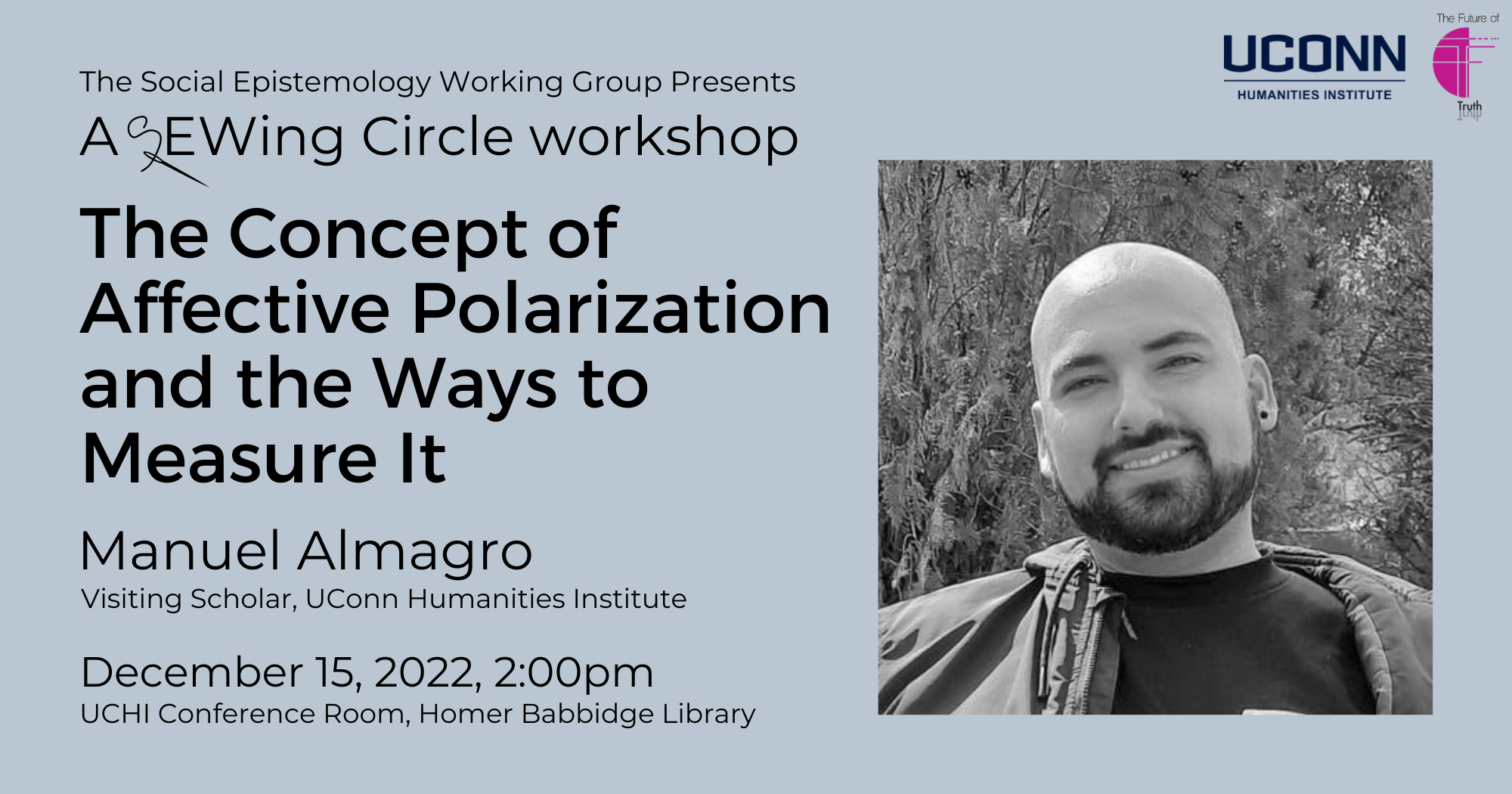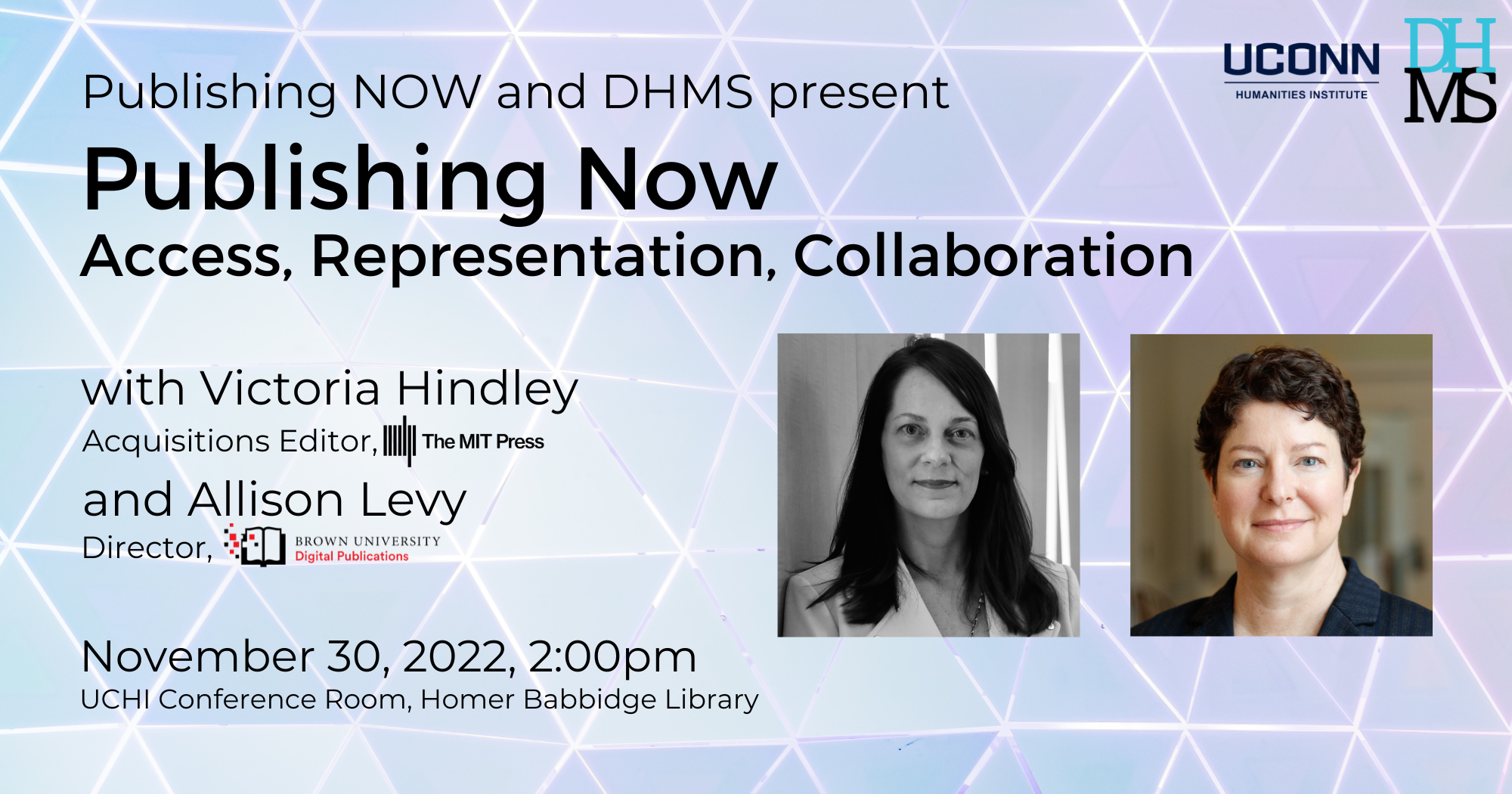Speaking of Time and Possibility
Stefan Kaufmann (Associate Professor of Linguistics, UConn)
with a response by Kareem Khalifa (Philosophy, UCLA)
Wednesday, February 1, 2023, 3:30pm, Humanities Institute Conference Room (HBL 4-209)
Add to Google calendar Add to Office 365 calendar Add to other calendar
The event will also be livestreamed with automated captioning.
All languages provide their speakers with ways to talk about uncertainty, unrealized possibilities, expectations for the future and evaluations of the past. Conditional sentences (if-then sentences in English) are prime examples:
- If Biden runs in 2024, Kim will vote for him.
- If Biden ran in 2024, Kim would vote for him.
- If Biden had run in 2024, Kim would have voted for him.
The interpretation of these sentences depends to a large extent on the temporal expressions (tense, aspect, adverbs) in their constituents. Interestingly, conditional constructions create special environments in which temporal expressions seem to take on meanings which they don’t have elsewhere. But what exactly are those special meanings, and how (if at all) are they related to their ordinary meanings? Such questions have attracted much attention in Linguistics and Philosophy. The patterns we find, not only in English but also across languages, offer fascinating case studies on the relationship between superficial diversity and underlying uniformity in the mapping between meaning and form. In this talk I will outline some of the issues and sketch my own ongoing work.
Stefan Kaufmann is an Associate Professor of Linguistics at the University of Connecticut. Prior to joining UConn in 2013, he received his PhD at Stanford in 2001, was a postdoctoral fellow at Kyoto University, and taught at Northwestern University. His research revolves around the meaning and use of language: how information is encoded in linguistic expressions, the range of variability of this encoding across languages, and what linguistic patterns can reveal about the way speakers view and think about themselves and their physical and social surroundings.
Kareem Khalifa is a professor of philosophy at UCLA (2022–present). Prior to that, he was at Middlebury College in Vermont (2006–2022). His research interests include general philosophy of science, philosophy of social science, and epistemology. In addition to authoring over 30 articles, he authored the book, Understanding, Explanation, and Scientific Knowledge (Cambridge, 2017) and co-edited Scientific Understanding and Representation: Modeling in the Physical Sciences (Routledge, 2022). He is currently extending his previous work in these areas to social-scientific conceptions of race and segregation. He is currently a Future of Truth Fellow at the University of Connecticut’s Humanities Institute. In 2025, he will be the Senior Visiting Fellow at the University of Pittsburgh’s Center for Philosophy of Science. In 2017, he received the American Council of Learned Societies’ Burkhardt Award, which funded a five-year project, Explanation as Inferential Practice.
Access note
If you require accommodation to attend this event, please contact us at uchi@uconn.edu or by phone (860) 486-9057. We can request ASL interpretation, computer-assisted real time transcription, and other accommodations offered by the Center for Students with Disabilities.
